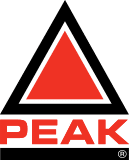Adapt or Fail: How to Tailor Your Hiring Process for the Contract Marketplace
By: Leslie Stevens-Huffman
When it comes to running an effective hiring process, one size does not fit all. You may lose talented engineering contractors to competitors unless you adapt your full-time hiring regimen to fit the fast-moving, task-oriented world of contract staffing.
The traditional hiring process for regular, full-time engineers is time-intensive and focused on a professional’s career ambitions, trajectory and their ability to succeed long-term. Conversely, contractors are expected to provide specific expertise or augment your existing staff on a short-term basis. Different hiring goals require different hiring strategies.
Luckily, you don’t have to start over. Here are four ways to adapt your full-time hiring process to fit the needs of an extended workforce.
Let Your Staffing Firm Do the Heavy Lifting
Eliminate time-consuming resume reviews and phone screens by letting a qualified staffing firm handle the pre-screening and selection process. Visit the agency so you can see how they source, recruit, interview, screen and match contractors for yourself. If you have specialized screening requirements, many firms are willing to handle those duties and build a customized talent pool.
Instead of wading through pages of irrelevant work history, have the recruiter create a concise profile that zeros in on the engineer’s recent and relevant skills and project experience. This way you can select a top prospect from a short list of prequalified candidates and concentrate on affirming the selection and discussing the work that needs to be done.
Define the Task and Start Date
Defining the problem that requires expertise, the project’s objectives and timetable, and a projected start date is an important first step when hiring contractors. First, it helps identify the absolutely essential competencies. Second, an interesting project is certain to grab the attention of top prospects. Contractors with in-demand skills won’t be on the market long; if you’re aren’t ready to start someone right away, hold off until you are.
Disseminating a clear scope of work in advance also gives experienced professionals the opportunity to outline how they would approach the project or problem, thus turning an ordinary job interview into a highly productive, solution-oriented discussion. As Jeff Haden points out in Inc., “Good consultants want to know as much as possible; the better they understand your expectations the easier it is to deliver those expectations.”
Streamline Interviews
The average interview process for full-time workers now takes 23 days, up from 13 days just five years ago. You’ll need to whittle that down to no more than two to three hours to compete for top contractors.
How? Ask the project manager or team leader to define, rank and weigh the contractor’s duties and responsibilities, then target interview questions toward skills and activities that will take up 80 percent of his or her time. At the same time, develop a scoring system or criteria for evaluating the candidate’s answers and skills. Ensuring that the decision making process is crystal clear before you start encourages precise and speedy verdicts – and keeps competitors at bay.
Rather than asking about long-term career goals to assess chemistry and cultural fit, ask what type of challenges the engineer is looking for in a project, what type of skills he or she wants to develop and his or her techniques for assimilating quickly and bonding with new teammates. Discovering the contractor’s hot buttons and objectives during the interview will help you sell your opportunity and execute a slam-dunk close.
Make Quick Decisions and Close
Eliminate lengthy deliberations by only involving key members of the project team in the interviewing process. Huddle before the contractor leaves and touch base with the staffing firm so you can secure a commitment from a hot prospect on the spot. Since engineering contractors are drawn to projects that enhance their skillsets and marketability, sell your firm and opportunities for professional growth by linking your project to the contractor’s goals and preferences.
To compete for top contract engineering talent in a competitive market, you need to adapt your hiring process to fit the type of person you’re trying to attract. If your hiring process isn’t working, it’s time to call a tailor.
Other information of potential interest
Build a Compelling EVP to Attract Top Engineering Talent
Tips for Building a Deep Mentor Pool
Emerging Strategies for Managing an Agile Workforce
How to Attract and Hire Creative Engineering Talent
Becoming a Client of Choice for Contract Engineers
4 Workplace Trends You Can’t Ignore
Need top engineering talent soon? Submit a job order or call 1-888-888-PEAK


